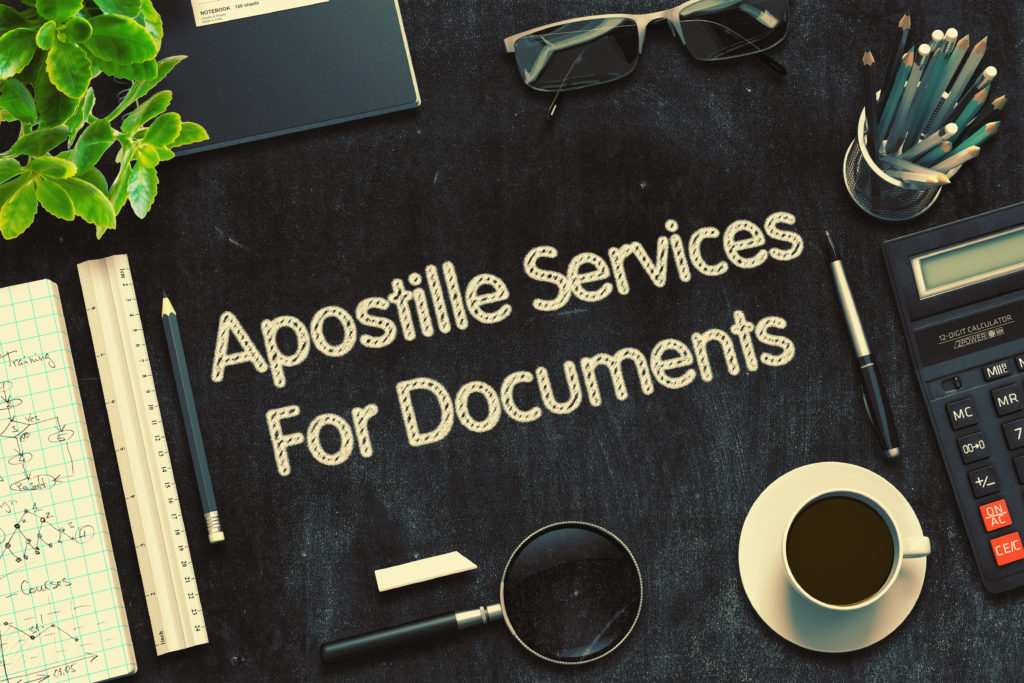Daily life is full of countless transactions. Swiping a credit card to buy groceries, paying cash for knick-knacks at a garage sale, or exchanging money for various types of services like a doctor’s appointment. Occasionally, certain transactions will involve a bill of sale. What does that mean? When do you need one? How do you get one? All of these questions and more will be answered in this article. Read on to find out everything you need to know about the mysterious bill of sale.
What is a Bill of Sale?
The concept of a bill of sale (BoS) is centuries old. In fact, various drafts of bills of sale documents have been traced back to the middle ages. At its foundation, a BoS officially records an exchange of assets. Naturally, as time has progressed bill of sale documents have evolved in content and use.
Originally, a BoS documented transactions involving shipping. Specifically, detailing the goods that were shipped from place to place. Such as food, animals, or raw materials like steel and cotton. Now, a BoS is most often used to track the sale of modes of transportation. For example, a car, watercraft, or motorcycle.
Traditionally, a bill of sale is initiated by the selling party. The document will include the necessary details of the exchange. The purpose of a BoS is to protect both the buyer and the seller.
When is a Bill of Sale Needed?
As previously mentioned, a BoS in modern times is frequently used in the exchange of transportation vessels. A motor vehicle is the most common example. Vehicles can include cars, trucks, tractors, buses, limousines, and eighteen wheeler trucks, to name a few. Additionally, bills of sale are used in the sale of boats, motorcycles, and certain large animals or livestock.
Nationwide, requirements for bills of sale vary. However, most states to require a mandatory BoS document the exchange of considerable assets of value. However, less financially significant sales do not require always require a bill of sale. The sale of certain items such as furniture, inexpensive jewelry, or clothes may include a bill of sale at the discretion of the seller. Although, a buyer can also initiate a bill of sale if that makes them more comfortable with the transaction.
Bill of Sale Template
To better illustrate a bill of sale, it is helpful to note what is included in the document. The exact appearance of a bill of sale can vary, but the information included is usually the same. A typical BoS will include the following information:
- Type of vehicle (i.e. car, boat, airplane, etc)
- Vehicle specifications – Make, model, year, odometer reading, VIN (Vehicle identification number)
- Name, Address, and signature of both the buyer and the seller
- Purchase price (at time of exchange, not the original value)
- Date of sale
- Guarantee from the seller that the item is free from all claims and offsets.
- Any representations or warranties
- Signature and stamp of a notary public
This list is a good jumping off point, but official requirements can vary nationwide.
Bills of Sale Across the Country
As you may suspect, the above requirements can vary depending on the state in which the sale is taking place. To ensure your bill of sale is accurate, consult your state’s requirements. Be sure to review the requirements for the state in which the sale is taking place. It is quite common for people to travel out of state for the purchase of motor vehicles, so the requirements may be different in that state than your home state. Below are some examples of different states, as a jumping off point. If your state of sale is not listed, consult the DMV bill of sale requirements by state list.
Bill of Sale Texas
A bill of sale is not required in the sale of vehicles in Texas. Instead, an official vehicle title transfer is mandatory for a legal vehicle sale in Texas. However, that is not to say you should not consider exchanging a BoS. Especially in car sales, bills of sale can prove quite useful in the event of an automobile mishap. A proper BoS can sometimes help prove the seller is no longer liable for possible damages caused by the car they sold. Texas is the second largest state in America, with consistently high statistics regarding car accidents. Therefore, the extra precaution of drafting an official bill of sale is a wise move.
In addition to the aforementioned bill of sale elements above, a Texas document may also include the known vehicle history report.
Bill of Sale Florida
In Florida, a BoS is a mandatory requirement of the state in private party sales of vehicles. The Florida Department of Highway Safety and Motor Vehicles (DHSMV) even provides an easy-to-use, state-approved bill of sale template. The state of Florida recommends getting the bill of sale notarized. However, notarization is not required. In addition to the standard elements of a bill of sale, Florida also requires the title number of the vehicle.
Furthermore, Florida encourages sellers to submit a Notice of Sale to the DHSMV. In the state of Florida, you must submit your notice of sale to your local tax collector’s office. This simple act frees you from liability in regards to the asset exchanged.
Bill of Sale Oregon
Like Texas, the state of Oregon does not require an official BoS for most motor vehicle transfers of ownership. However, the completion of a bill of sale is recommended to protect the seller. Without a bill of sale, Oregon may hold you, the previous owner, liable for outstanding vehicle registration fees. A proper bill of sale will confirm the date in which you released financial responsibility to a new owner.
Oregon bills of sale, in addition to the standard requirements, should include the license plate number of the vehicle. Furthermore, the new owner (i.e. purchaser) is required to apply for a new car title within 30 days of purchase. Failure to oblige with result in a late fee that gets more expensive the longer the buyer waits.
Bill of Sale Georgia
Officially, Georgia does not require a BoS. However, the state does provide a free online template. Like Texas and Oregon, research suggests that while not required, a bill of sale is a smart idea (seeing a trend here?). Sellers have been held liable in the past for abandoned vehicles they had sold. As a seller, you cannot control what the buyer does with the asset after the sale. The best way to save yourself legal trouble and release liability is with a handy dandy bill of sale.
Bill of Sale Colorado
Like Florida, the state of Colorado does require a bill of sale in certain instances. Specifically, when the title does not have space to record the odometer reading, or if the purchaser needs to drive the vehicle prior to official registration. In any case, it is always best to fill out a BoS to protect both the buyer and the seller. Most local Colorado county motor vehicle offices will provide an acceptable bill of sale form.
Bill of Sale Form
Some states, whether they require it or not, provide an official form for bills of sale. A quick google search with your state followed by “bill of sale form” will likely churn out a template for you. If not, there are countless free generic templates online. Most will include a variation of the aforementioned listed requirements such as sale price and buyer/seller contact information. Less is more does not apply in this case. When in doubt, include as much information regarding the sale as possible.
Once all the required information is filled out, both the buyer and the seller must sign and date the document. While not required by all states, it is a good idea to have the BoS signed and stamped by a notary as well.
What is a Notary?
A notary, or notary public, is a certified representative of the secretary of state. A notary serves as an unbias witness to the signing of important or significant documents. An important element of notarization is the proper identification of all parties signing the document. A notary not only confirms the identity of the signer but that they understand the document and are choosing to sign at their own will.
Some version of the notary public has been around for centuries. A notary is intended to prevent fraud and ensure the validity of the people signing the document. It is vital to understand that a notary is not intended to prove the authenticity of the contents of the document.
Notary Public vs. Attorney
In fact, a notary is not allowed to legally advise on the contents of the document they are signing. This is an important distinction because in some cultures a notary acts as a lawyer for clients. For example, in Hispanic cultures, people commonly seek legal advice from a notario publico. While notario publico directly translates to “notary public” the two occupations have very different job descriptions. A notario publico can legally draft, advise upon, and notarize documents for clients. They undergo rigorous legal training, with a minimum of five years of legal education and experience. On the other hand, anyone over 18 without a criminal record can become a notary in the U.S.
An attorney in America can, however, also be a certified notary public. So long as the attorney is not notarizing a document that they drafted, or advised, they can notarize documents.
Where to find a Notary?
Fortunately, when in need of a notary, you likely do not have to look too far. There are millions of notaries in the United States. More often than not, you can probably find a notary in a place you regularly visit when you run errands. When seeking a notary in your town or city, consider checking in these places:
- Car dealerships – Due to the high volume of notary needs on site, most major car dealerships have a notary on site and available for public use
- Insurance offices and real estate agencies – For the same reasons as car dealerships!
- Banks and credit unions – Whether or not you are a paying client/account holder of a financial institution, they have to provide notary services to you. Notaries serve the public, therefore they have to be available to everybody
- Your place of business – Some larger companies have a notary on staff for business and employee convenience
- City Hall or County Clerk – Check with your local government offices about notary service availability
- Public Library – You can get more than books and old movies at your local library!
- Universities – Many college campuses offer notarization services for students and faculty
Naturally, pricing and availability vary widely depending on your place of residence. Save yourself time and money by calling and confirming availability first.
How much does a Notary Cost?
There is no standard cost for notary services. However, there is a legal cap to how much a notary can charge. For example, some states mandate a notary cannot charge more than $10 per signature. That is to say, if you have a document requiring multiple signatures from multiple parties, notarization services can start to add up.
At the same time, some of the aforementioned notary services come with a low-cost or free price tag. For instance, if you are an account holder at some larger banks, they may offer complimentary notary services.
On the other hand, some notaries charge additional fees for certain services. For example, larger metropolitan areas often have mobile notaries. This on-demand, notary at your doorstep service is an increasingly popular way to save the consumer time. However, it comes at a higher price tag as the mobile notary will charge extra for travel time.
Title Transfer vs. Bill of Sale
Clearly, all states have different requirements involving a bill of sale. However, it is undoubtedly always a good choice to have one, just in case. Legally speaking, a bill of sale can, in some cases, be an effective tool for releasing liability and marking an exchange in ownership. Although this may be true, a bill of sale does not officially make the buyer the owner of the asset. Instead, the buyer will have to apply for a title transfer in order to officially become the owner. This fact is true in every state.
What is a Title Transfer?
A title is a document that officially marks ownership of certain assets, such as cars and boats. There are several instances when a title transfer is required. For example:
- Buying or selling
- Transferring ownership between family members
- Paying off a loan
- Inheritance
- Changing the name on the title
- Donations or gifts
The above list applies to a variety of items, such as cars, boats, planes, and more. However, every state has different rules and regulations regarding which assets have titles and therefore would require a title transfer to occur. Be sure to check your state’s requirements regarding your asset’s documentation.
How to Get a New Title
As a buyer, once you have procured your bill of sale, you will need to apply for a new title to confirm ownership. Specific steps vary by state, but the general flow is as follows:
- Make an appointment at your local department of motor vehicle office (the notorious DMV)
- Be sure to select “title transfer” as the reason for the visit
- Fill out the appropriate paperwork, and provide the bill of sale
- Pay a transfer fee (price varies by state)
- Be prepared to complete addition state-required tasks (such as state inspection and/or smog testing)
Types of Bills of Sale
To better understand bills of sale, we need to break down the various types that exist.
Vehicle Bill of Sale
A vehicle bill of sale is easily the most common type. To enumerate, while a number of states do not require them, it is always a good idea to have one. If something goes sideways with the transaction and/or the asset exchanged, you will find yourself relieved to have a notarized bill of sale on hand. These simple documents have saved many people the headache of lawsuits and liability.
To reiterate, a BoS does not indicate an official exchange of ownership. In all fifty states, it is mandatory that the buyer applies for a new vehicle title to legally and officially bear ownership to the asset.
Quitclaim Bill of Sale
A quitclaim bill of sale transfers the interest of ownership from the seller to the buyer. However, a quitclaim specifically makes no guarantee that the asset in question is owned by the seller and/or is free of adverse claims or outstanding liens against it.
This type of sale presents both pros and cons. For the seller, this can make it much easier to sell a car that, perhaps, belonged to their deceased relative. As for the buyer, assets being sold with a quitclaim are typically more affordable for the buyer due to the risks involved. This same reason is a con for the seller, as they will not profit as greatly from the sale. If you are a buyer involved in a quitclaim sale, do not skimp on your due diligence. Do your research and try to confirm that the asset and seller are legitimate.
“As is” vs. Warranty Bills of Sale
Cars are notorious for breaking down, especially when they are used and/or an older model. Therefore, as a seller, you may want to include the words “as is” in your bill of sale. These two words can protect you from having to pay for vehicle repairs, should they arise after the sale took place.
Conversely, some sellers may include a limited warranty provision. This type of sale is more likely to occur when buying from a pre-owned car dealership. In this case, the bill of sale would state a warranty that covers certain repairs for a restricted period of time. It is vital that the document state explicitly the terms of the warranty.
Absolute Bill of Sale
In the event that a sale happens outright, an absolute BoS would be appropriate. For example, if the buyer pays for a car in full at the time of sale. In this case, the seller relinquishes the right to the car to the buyer immediately, and cannot request any more money.
This document should include all the fiscal details of the sale. Such as:
- The agreed upon, and paid price
- Form of payment (i.e. $500 cash, $2500 check)
- …plus all the previously mentioned details regarding the item exchanged, signatures, etc.
A sale in the manor is common amongst private sales of assets.
Conditional Bill of Sale
As you can probably infer, a conditional sale is subject to various provisions. To carry on with the example of a vehicle, a conditional sale would involve a payment plan. If you purchase a car from a dealership, it likely comes with a higher price tag than buying an old car privately off of Craigslist. You will pay a certain amount down, and then pay the remaining balance in monthly installments over an agreed upon time period.
In the event that you default on your payments, you can have the car taken away, or incur a serious of fees. Therefore, in a conditional sale, the buyer does not fully own the asset until the conditions have been met.
Bill of Sale: In Summary
A bill of sale is a simple document used to detail the sale of an asset. Anything from a motorcycle to a live horse may use a bill of sale. Like many facets of state law, bills of sale requirements vary widely across the country. However, even if your state does not require one, it is always a good idea to properly complete, and notarize, a bill of sale. These easy to use documents are designed to protect both the buyer and the seller when exchanging assets.
Sources
https://www.legalzoom.com/articles/what-is-a-bill-of-sale
https://www.nolo.com/legal-encyclopedia/bill-of-sale-basics-32646.html
https://www.dmv.org/bill-of-sale.php
https://definitions.uslegal.com/b/bill-of-sale/
https://www.rocketlawyer.com/article/absolute-and-conditional-bill-of-sale.rl
https://en.wikipedia.org/wiki/Bill_of_sale#Historical_origin
https://www.legalzoom.com/articles/pros-and-cons-of-a-quitclaim-bill-of-sale
https://www.dmv.org/tx-texas/bill-of-sale.php
https://www.dmv.org/fl-florida/bill-of-sale.php
https://www.dmv.org/or-oregon/bill-of-sale.php
https://www.dmv.org/ga-georgia/bill-of-sale.php
https://www.dmv.org/co-colorado/bill-of-sale.php
https://www.thebalanceeveryday.com/where-to-notarize-affidavit-896914
https://www.notarypublicstamps.com/articles/what-is-a-notario-publico/




